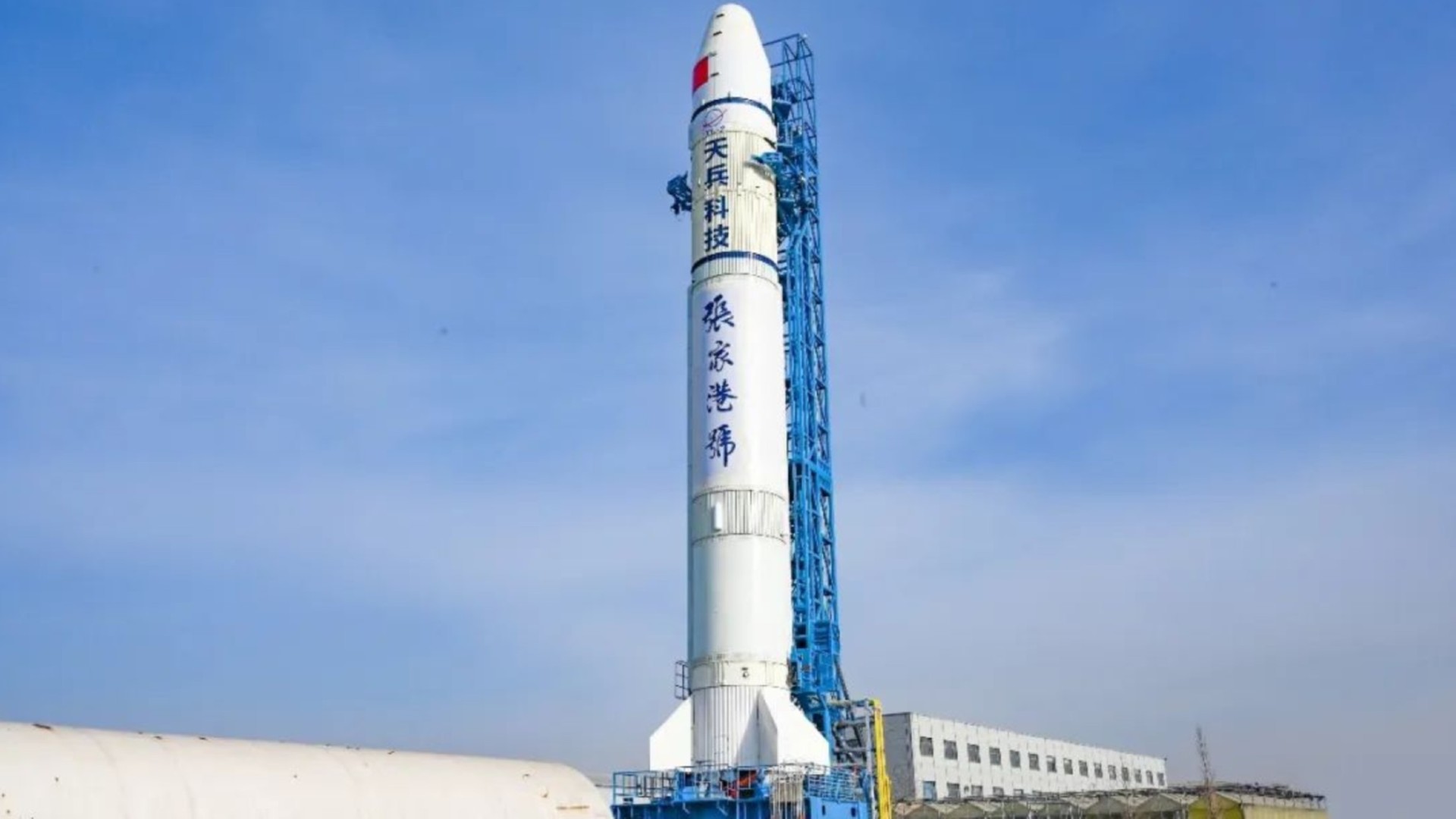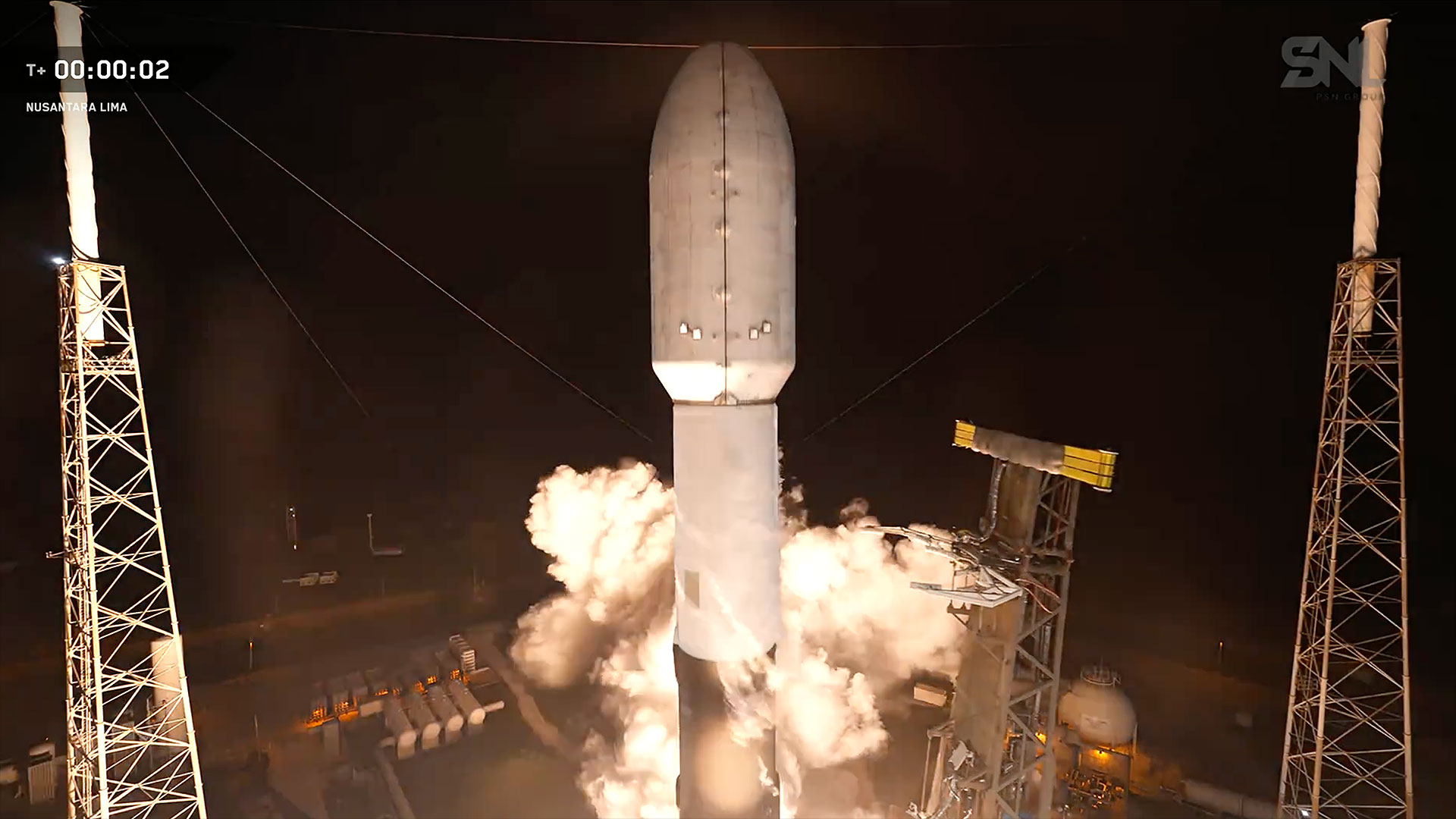
A private Chinese rocket took an unscheduled flight over the weekend.
The Beijing-based company Space Pioneer conducted a "static fire" test with the first stage of its new Tianlong-3 rocket on Sunday (June 30) in Gongyi, a city of about 800,000 people in the central Chinese province of Henan.
Space Pioneer briefly ignited the stage's engines while the vehicle remained anchored to the launch pad. That's how it was supposed to work, anyway. But the anchoring mechanism failed on Sunday, and the rocket lifted off on a dramatic and frightening surprise mission.
Wow. This is apparently what was supposed to be a STATIC FIRE TEST today of a Tianlong-3 first stage by China's Space Pioneer. That's catastrophic, not static. Firm was targeting an orbital launch in the coming months. https://t.co/BY9MgJeE7A pic.twitter.com/L6ronwLW1NJune 30, 2024
The mission was also brief, ending after just 50 seconds when Tianlong-3 crashed into a hilly area near Gongyi, creating a massive fireball that some onlookers caught on video.
The explosion did not injure anyone, Henan emergency-management officials told The Paper, a Shanghai-based media outlet.
Related: China's Space Pioneer reaches orbit with Tianlong-2 rocket launch (video)
Space Pioneer has some spaceflight bona fides: Its Tianlong-2 rocket reached orbit in April 2023, becoming the first private Chinese launch vehicle to do so. Tianlong-3 is envisioned to be a significant leap forward for the company; the rocket is modeled after SpaceX's Falcon 9, according to SpaceNews, and, like that workhorse vehicle, is planned to be partially reusable.
Breaking space news, the latest updates on rocket launches, skywatching events and more!
Tianlong-3 will also be considerably more powerful than its older cousin; it will be capable of carrying 17 tons of payload to low Earth orbit (LEO), SpaceNews reported, compared to Tianlong-2's approximately 2-ton limit.
Another view here. Got to hope that there are no casualties. This is absolutely wild. And Space Pioneer has already reached orbit with Tianlong-2, so this is just staggering. https://t.co/QlQT13FNtI pic.twitter.com/F58tJhVoRJJune 30, 2024
Tianlong-3 is still in development, and it's unclear at this point how Sunday's accident will affect the rocket's test campaign and timelines going forward.
"Tianlong," by the way, translates as "Heavenly Dragon." The name is similar to that of China's space station in LEO, Tiangong, which means "Heavenly Palace."
Join our Space Forums to keep talking space on the latest missions, night sky and more! And if you have a news tip, correction or comment, let us know at: community@space.com.

Michael Wall is a Senior Space Writer with Space.com and joined the team in 2010. He primarily covers exoplanets, spaceflight and military space, but has been known to dabble in the space art beat. His book about the search for alien life, "Out There," was published on Nov. 13, 2018. Before becoming a science writer, Michael worked as a herpetologist and wildlife biologist. He has a Ph.D. in evolutionary biology from the University of Sydney, Australia, a bachelor's degree from the University of Arizona, and a graduate certificate in science writing from the University of California, Santa Cruz. To find out what his latest project is, you can follow Michael on Twitter.
